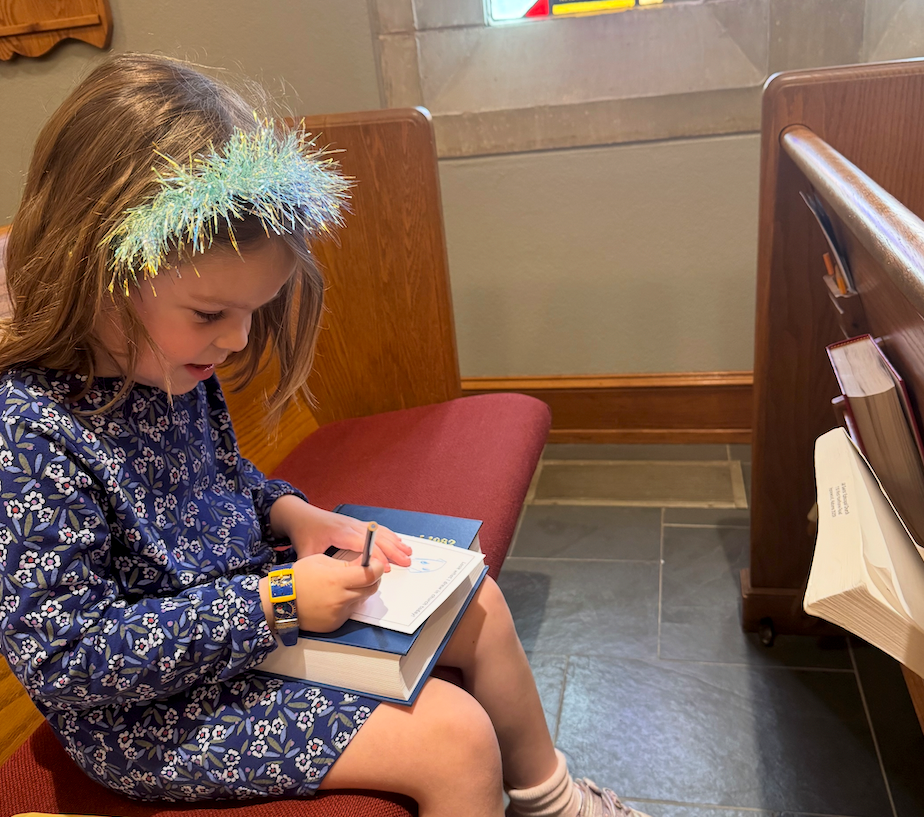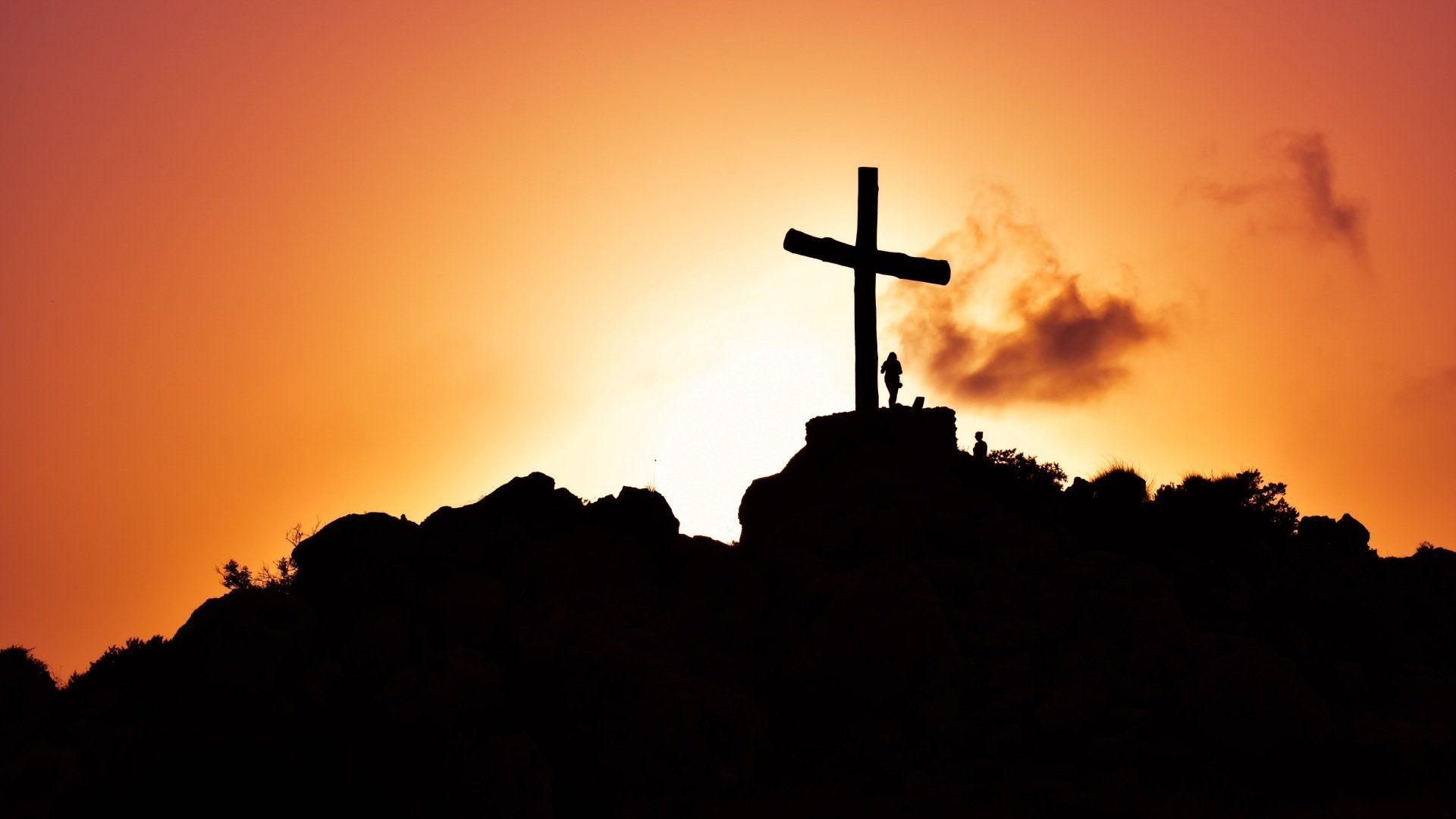Denying Ourself and Taking Up Our Cross
"Denying Ourself and Taking Up Our Cross"
Sermon by The Rev. Cindy Carter
February 25, 2024
Mark’s Gospel recounts three times when Jesus predicted his own death and resurrection. Today we have the first of these, a prediction delivered to his disciples.
As we’ve heard it, our reading today includes Jesus’ first passion prediction, his disciples’ reaction to his prediction, and then a teaching - delivered to the gathered crowd and to his disciples – about what true discipleship looks like.
After Jesus made the prediction of his suffering, rejection, death and resurrection, I think it’s safe to say that his disciples’ reaction was surprise, perhaps shock, probably outright disbelief.
They were definitely not expecting a Messiah who would undergo such things. They were expecting a Messiah who would free them from the oppression of Rome and re-take the throne of David.
Perhaps they were asking themselves if they had made some very bad decisions in giving up homes, families, and jobs for a Messiah who was simply going to suffer, be rejected, and die.
And, the rising again part. Well, I doubt that even registered with them. It was just too unbelievable.
Peter even took Jesus aside – away from the others - and, in the words of scripture, “began to rebuke him.” Now, a dictionary definition of rebuke is “to express sharp, stern disapproval; …to reprimand.” So, we clearly get the idea about what was going on in that heated, private conversation between Jesus and Peter, and we heard the way Jesus very clearly responded to what Peter had to say.
But, then comes the teaching on discipleship that Jesus gives to his disciples and to the crowd that Jesus calls together.
If any want to be become my followers, let them deny themselves and take up their cross and follow me. (repeat)
I’ve thought a lot about that line this past week. What does it mean to deny ourselves and to take up our cross?
Well, I’ve come up with a couple of things that I don’t think it means and one thing that I think it does mean.
So, what does this instruction not mean?
First, I don’t think to deny ourselves means that we must deny who we are. Bishop Michael Curry has written, “…the call of God…is always a call to become the true you…someone made in the image of God.”
Bishop Curry then related a Jewish proverb. “Before every person there marches an angel proclaiming, ‘Behold the image of God.’”
I believe we were all meant to see that angel going before us and going before everyone we meet. I think we are all meant to see that angel every day when we look in the mirror.
We are indeed created in the very image of God, and becoming a disciple surely does not involve denying, or destroying who we were created to be. But rather, I believe that becoming a disciple always involves discovering our truest selves.
Second, I don’t believe that Jesus meant that denying ourselves is something that can be forced upon us. I don’t believe that denying ourselves means that we must submit ourselves to what some might call a “doormat theology,” ignoring our own basic human needs or seeing ourselves as not deserving of love and respect.
It is impossible for me to believe that the loving God who created us would want any of us to endure an abusive relationship or to tolerate injustice. Any cross we are forced by others to carry is not a cross we are meant to carry. That wouldn’t be true discipleship.
Denying ourself and carrying our cross must be voluntary on our part, just as Jesus’ cross was something he submitted to willingly.
So, denying ourselves and taking up our cross doesn’t mean denying who we are created to be. And, denying ourselves and taking up our cross aren’t things that can be forced upon us.
So, what does it mean to deny ourselves and take up our cross if we want to follow Jesus? What does true discipleship look like?
This week I came across a brief piece written by one of my favorite preachers and commentators, David Lose. It was titled, “The Theory of Everything.”
For me, it answered the question of what it means to deny ourself and carry our cross in a way that helped me understand better what true discipleship looks like. David Lose wrote that denying ourself, carrying our cross, following Jesus happens when we “surrender our claims to power and strength and glory to serve others.” Becoming a disciple involves making ourselves vulnerable, giving love to others, getting out of our own way, seeking not what we want but what the world needs.
When our lives look more and more like this, we find that we make more connections with people around us. People we might never have expected to be connected with. People like us and people not like us.
And, it is those connections that help build community. Something I think is incredibly important to a life of discipleship, because I don’t think we can follow Jesus alone.
It is also those connections that keep us engaged with the world. And, how can we possibly know the needs of the world, if we aren’t connected to the world?
Of course, being in community and engaging with the world are not always easy. They require sacrifice and they can even cause suffering and pain for us. But, as David Lose wrote, when we stop worrying about our own wants, when we deny ourselves for the sake of others, then we find more than we could have ever imagined. More life, more joy, more sharing of burdens, more love. Connectedness. Community. Engagement.
That is why he called it the “theory of everything,” the more we give, the more we receive; the more we seek to be a friend, the more friends we will discover; the more we love, the more we are loved.
It is the way Jesus lived his life. It is the way of generous, self-giving love. My friends, it is the way we are called to follow.
AMEN.
More Announcements







